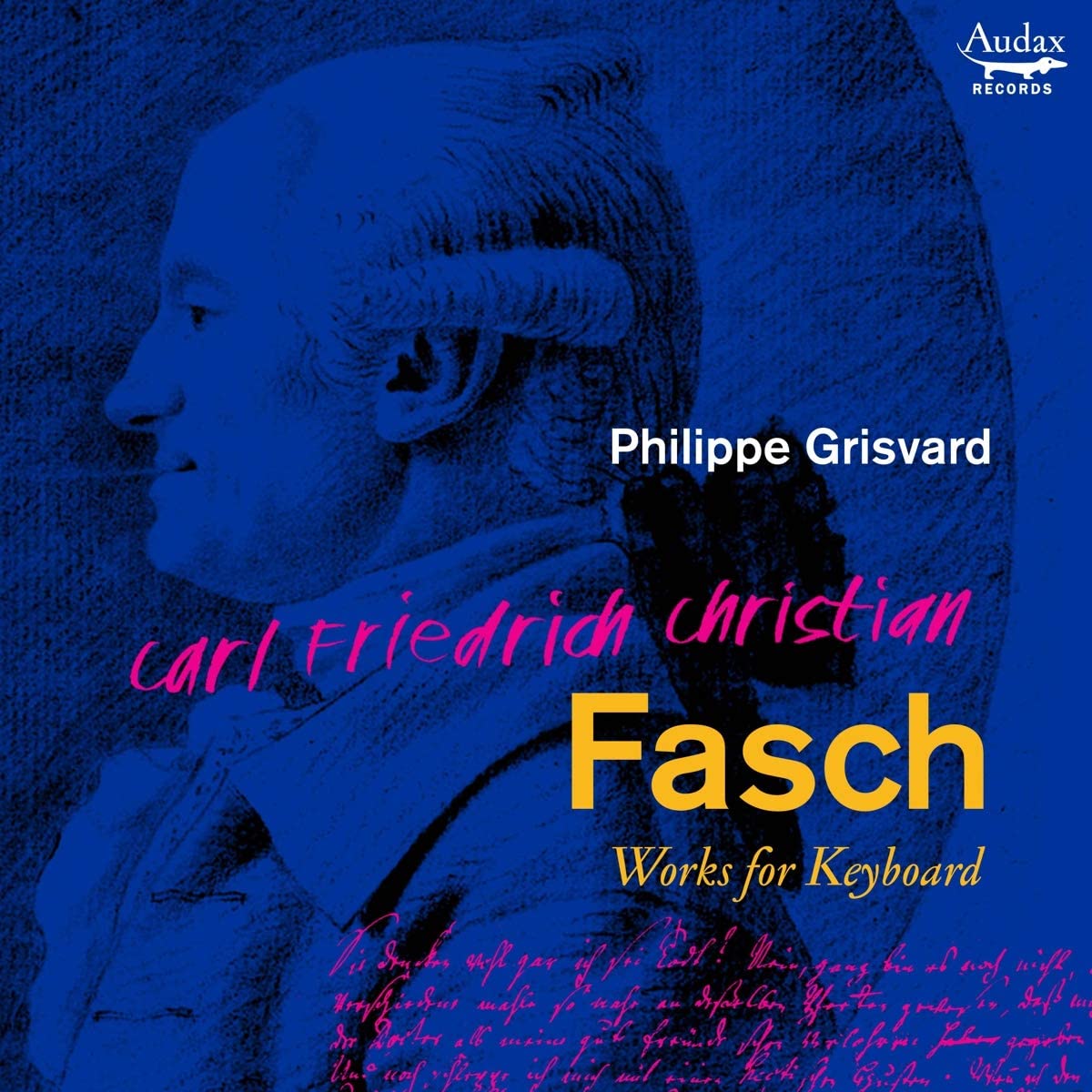Philippe Grisvard fortepiano attrib. Stein (c1790)
64:46
Audax Records ADX13725
Click HERE to buy this on amazon.co.uk
Anyone who knows me knows my reputation as a Fasch scholar; that is to say that I am considered something of an expert on the music of Johann Friedrich Fasch, who took half a dozen gap years after his studies in Leipzig before accepting the position of Kapellmeister to the court of Anhalt-Zerbst, which he held until his death in 1758. Only two years before he passed away, his son – whose keyboard music is recorded here for the first time – moved to take up the position of second harpsichordist at the Prussian court of the king we English speakers call Frederick the Great, where he alternated with C. P. E. Bach in accompanying the monarch’s performances on flute. But he did much more besides, primary among his achievements being the foundation of the great choral society, the Berlin Singakademie.
When the focus of conferences held in Zerbst has shifted from the father to the son, I must confess that I have not had much enthusiasm; where the older man’s music speaks directly to me, the little I had heard of the younger Fasch’s music always seemed to start well but not have enough to sustain it. This new CD has forced me to challenge that opinion. Grisvard presents a composer who is full of ideas, and clearly an excellent keyboard player! The three three-movement sonatas each have their own character, and the shorter character pieces are full of wit and drama; they are not quite as arresting as some of his colleague Bach’s more daringly chromatic music, but they do sometimes surprise the listener, which can only be a good thing! Anything they could do, Grisvard can, too – this recital (ending with what was the composer’s most celebrated keyboard piece, am Ariette with 14 variations) is an outstanding display of virtuosity, but also a demonstration of commitment, drawing out a profundity to some of the darker music that I had thought Fasch incapable of. The fact that he studied with Johann Wilhelm Hertel, whose chamber music, in particular, reveals a similarly melancholic streak, is telling; he was also praised for his stylish improvised accompaniments by the violinist Franz Benda, showing that he was spontaneously brilliant. These might equally describe Grisvard’s approach – and cause us to regret Fasch’s decision later in life to destroy many of his manuscripts. As usual with Audax, the presentation is classy and meticulous.
If M. Grisvard felt inclined to follow this recording up with a disc of sonatas by J. W. Hertel (especially with the same recording engineer), I for one would not complain.
Brian Clark
